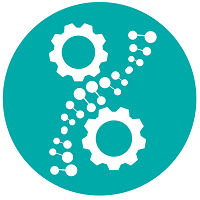Back
Manufacturing & Analytical Characterization – Chemical
Session: Symposium: Novel Manufacturing Approaches in Pharmaceuticals and Biopharmaceuticals (CE)
Machine Learning Assisted Optimization of Chemical Reactions
Tuesday, October 18, 2022
9:30 AM – 10:00 AM ET
Location: 206 AB

Kehua Yin
Investigator
GSK
Collegeville
Speaker(s)
In the first part of the presentation, motivations of applying machine learning in reaction screening will be discussed. It is a complex and challenging task to optimize a chemical reaction which requires the evaluations of various reaction parameters, such as catalyst, additive, solvent, concentration and temperature. Currently, bench scientists conduct reaction screening using high-throughput experimentation (HTE) in a stepwise manner, usually identifying the best set of catalyst and ligand, before identifying the ideal solvent and finally optimizing continuous variables such as temperature, reagents equivalents etc. Working in this way simplifies the complexity, but only investigates a portion of the chemical space and risks not identifying the ‘true’ set of optimum reaction conditions. Advances in AI/ML techniques mean that this type of complex problem can now be addressed using a computer algorithm.
In the second part of the presentation, the focus will be about the case study with Bayesian reaction optimization on a palladium catalyzed C-N coupling model reaction in a large chemical space. The reaction parameters include 68 solvents, 25 bases, 18 ligands and 5 different continuous variables, resulting in 7,435,800 possible reaction conditions. Twelve experiments in each iteration of optimization were selected by the algorithm and performed by HTE. After eight iterations, the yields of 14 experiments are higher than that of the condition reported in the literature. Yield of higher than 90% can be achieved consistently after four iterations. Moreover, A random forest regression model is built with the results of 96 experiments, which is used to identify other high yield conditions that are not selected by Bayesian reaction optimization. These results show the power of machine learning in finding optimal reaction conditions for different parameters simultaneously.
In the second part of the presentation, the focus will be about the case study with Bayesian reaction optimization on a palladium catalyzed C-N coupling model reaction in a large chemical space. The reaction parameters include 68 solvents, 25 bases, 18 ligands and 5 different continuous variables, resulting in 7,435,800 possible reaction conditions. Twelve experiments in each iteration of optimization were selected by the algorithm and performed by HTE. After eight iterations, the yields of 14 experiments are higher than that of the condition reported in the literature. Yield of higher than 90% can be achieved consistently after four iterations. Moreover, A random forest regression model is built with the results of 96 experiments, which is used to identify other high yield conditions that are not selected by Bayesian reaction optimization. These results show the power of machine learning in finding optimal reaction conditions for different parameters simultaneously.
Learning Objectives:
- Upon completion, participant will be able to understand the current workflow of reaction screening and its problems, as well as the reason to apply machine learning in reaction optimization.
- Upon completion, participant will be able to understand the basic knowledge of Bayesian optimization and how to apply it in reaction optimization.
- Upon completion, participant will be able to understand the basic knowledge of random forest regressor and how it identifies additional optimal reaction conditions.

